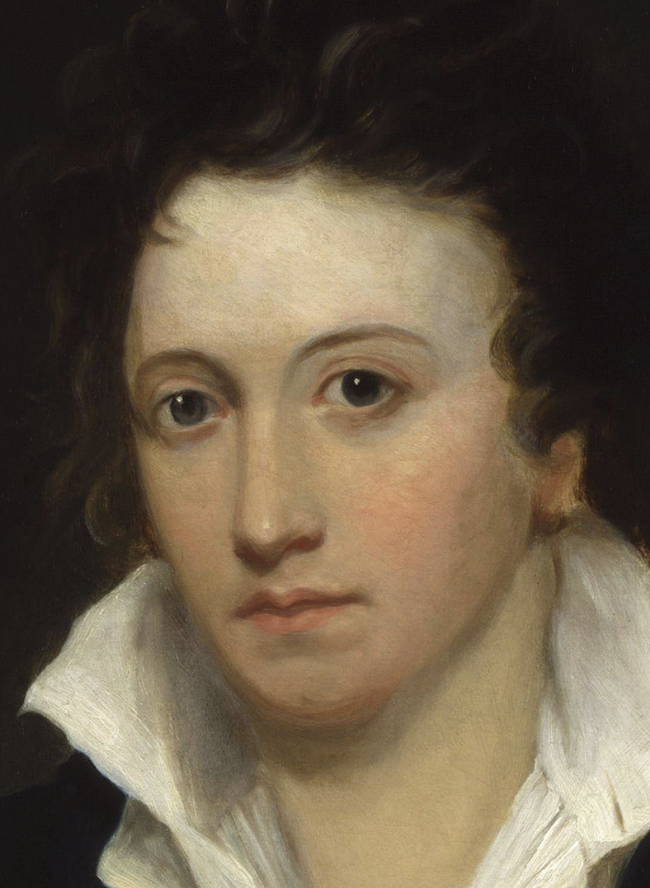On this date in 1792, Percy Bysshe Shelley, one of atheism’s most passionate advocates, was born in Field Place, Sussex, England. As an 18-year-old, Shelley was expelled from Oxford University for writing The Necessity of Atheism (1811), a pamphlet which opens: “There is no God.” Shelley vigorously protested the imprisonment of an elderly publisher for distributing Thomas Paine‘s Age of Reason in another pamphlet, “A Letter to Lord Ellenborough.” Shelley’s Declaration of Rights further championed freedom of thought and press.
In A Refutation of Deism (1814), Shelley averred, “It is among men of genius and science that atheism alone is found.” Freethought permeated his other writings, including Hymn to Intellectual Beauty (1816), The Revolt of Islam (1817), Peter Bell the Third (1819) and Ode to Liberty (1820). When he eloped with 16-year-old Harriet Westbrook, the daughter of a barkeeper, his father disinherited him. The pair briefly went on a political speaking tour in Ireland. They had two children but the marriage was unsuccessful despite Shelley’s increasing recognition as a poet.
New scandal followed when he ran off with 16-year-old Mary Wollstonecraft Godwin, the daughter of atheist writer William Godwin and Mary Wollstonecraft. The young couple fled to the continent, traveling for a time with Lord Byron. During a writing race between the trio, Mary produced her famous classic Frankenstein. When Shelley’s first wife committed suicide, he was denied custody of their two sons because of his infidel views. Mary Godwin and Percy wed in 1816, and had a son William.
The young couple moved to Italy, where Shelley penned Prometheus Unbound, a lyrical drama. Shelley, at Byron’s invitation, sailed to Pisa to consult over a new magazine. Shelley drowned tragically at 29, along with two others, on the return trip when their yacht capsized in a storm. (D. 1822)

